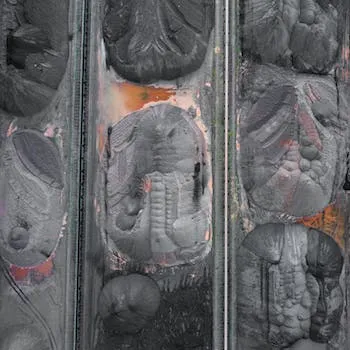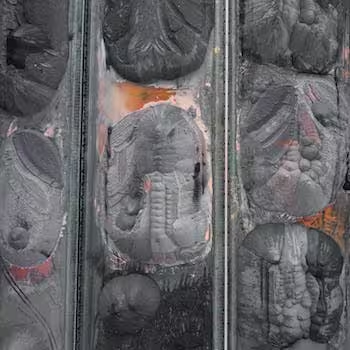-
Contents
“Uncovering the Impact of AI on Extraction Workers and Beyond!”
The use of artificial intelligence (AI) is becoming increasingly prevalent in many industries, and the extraction industry is no exception. AI has the potential to revolutionize the way Extraction Workers do their jobs, from automating mundane tasks to providing more accurate data analysis. However, AI also has the potential to disrupt the industry by eliminating jobs and creating new ones. This raises the question: are Extraction Workers, and All Other workers in the industry, affected by AI? In this article, we will explore how AI is impacting the extraction industry and what it means for workers. We will look at how AI is being used in the industry, how it is affecting job roles and opportunities, and what steps can be taken to ensure that workers are not left behind in this technological revolution.
How Will AI Impact the Future of Extraction Workers?

The use of artificial intelligence (AI) in the extraction industry is likely to have a significant impact on the future of Extraction Workers. AI has the potential to automate many of the tasks that are currently performed by human workers, such as drilling, surveying, and data analysis. This could lead to a reduction in the number of jobs available for Extraction Workers, as well as a shift in the types of skills required for these positions.
AI-driven automation could also lead to increased safety for Extraction Workers. AI-powered systems can be used to monitor and analyze data from drilling sites, helping to identify potential hazards before they become a problem. This could reduce the risk of accidents and injuries on the job, making extraction work safer for everyone involved.
In addition, AI could help improve efficiency in the extraction industry. AI-powered systems can be used to optimize drilling operations, helping to reduce costs and increase productivity. This could lead to higher profits for companies in the industry, which could result in better wages and benefits for Extraction Workers.
Finally, AI could help make extraction work more accessible to people from diverse backgrounds. AI-powered systems can be used to analyze data from different sources and provide insights that can help inform decisions about where and how to extract resources. This could open up opportunities for people who may not have had access to these jobs before, allowing them to benefit from the economic opportunities that come with working in the extraction industry.
Overall, AI is likely to have a major impact on the future of Extraction Workers. While it may lead to some job losses due to automation, it could also create new opportunities and make extraction work safer and more efficient.
Examining the Impact of AI on All Other Industries Affected by Automation
The impact of artificial intelligence (AI) on All Other industries affected by automation is undeniable. AI has revolutionized the way businesses operate, allowing them to automate processes and increase efficiency. AI-driven automation has enabled companies to reduce costs, improve customer service, and increase productivity.
AI-driven automation has had a profound effect on the manufacturing industry. Automation has allowed manufacturers to reduce labor costs, increase production speed, and improve product quality. Automation has also enabled manufacturers to reduce waste and increase efficiency. Additionally, AI-driven automation has allowed manufacturers to better manage their supply chains and optimize their production processes.
The transportation industry has also been significantly impacted by AI-driven automation. Autonomous vehicles are becoming increasingly common, allowing companies to reduce labor costs and improve safety. Autonomous vehicles are also able to navigate more efficiently than human drivers, reducing fuel consumption and emissions. Additionally, AI-driven automation has enabled companies to better manage their fleets and optimize routes for maximum efficiency.
AI-driven automation has also had a major impact on the healthcare industry. Automation has allowed healthcare providers to streamline processes and reduce costs. Automation has also enabled healthcare providers to better manage patient data and improve accuracy in diagnosis and treatment. Additionally, AI-driven automation has allowed healthcare providers to better monitor patient health and provide personalized care.
Finally, AI-driven automation has had a significant impact on the retail industry. Automation has allowed retailers to reduce labor costs and improve customer service. Automation has also enabled retailers to better manage inventory and optimize pricing strategies for maximum profitability. Additionally, AI-driven automation has allowed retailers to better analyze customer data and personalize marketing campaigns for maximum effectiveness.
In conclusion, the impact of AI on All Other industries affected by automation is undeniable. AI-driven automation has enabled companies across all industries to reduce costs, improve customer service, increase productivity, and optimize processes for maximum efficiency. As AI technology continues to evolve, it is likely that its impact on All Other industries will only continue to grow in the years ahead.
Exploring the Potential Benefits and Challenges of AI for Extraction Workers and Other Professionals
The potential benefits and challenges of artificial intelligence (AI) for Extraction Workers and other professionals are vast and varied. AI has the potential to revolutionize the way many industries operate, from healthcare to manufacturing. For Extraction Workers and other professionals, AI could provide a number of advantages, such as increased safety, improved efficiency, and cost savings. However, there are also potential challenges that must be addressed in order for AI to be successfully implemented.
One of the primary benefits of AI for Extraction Workers is increased safety. AI-powered systems can be used to monitor operations in real-time, allowing for quick responses to any potential hazards or risks. This could help reduce the risk of accidents or injuries on the job. Additionally, AI-powered systems can be used to automate certain tasks, such as drilling or surveying, which could reduce the amount of manual labor required and thus reduce the risk of injury.
AI could also improve efficiency in extraction operations. AI-powered systems can analyze data quickly and accurately, allowing for faster decision-making and more efficient operations. This could lead to increased productivity and cost savings for companies. Additionally, AI-powered systems can be used to automate certain tasks, such as data collection or analysis, which could free up workers’ time for more complex tasks.
However, there are also potential challenges associated with implementing AI in extraction operations. One of the primary concerns is the potential for job displacement due to automation. As AI-powered systems become more advanced, they may be able to take over certain tasks that were previously done by humans. This could lead to job losses in certain sectors as companies look to reduce costs by replacing human labor with automated systems. Additionally, there is a risk that AI-powered systems may not be able to accurately identify certain hazards or risks in an extraction operation, leading to potential safety issues.
In conclusion, while there are potential benefits associated with using AI in extraction operations, there are also potential challenges that must be addressed before it can be successfully implemented. Companies must carefully consider these issues before investing in AI technology in order to ensure that it is used safely and effectively.
Q&A
1. How is AI impacting Extraction Workers?
AI is impacting Extraction Workers in a variety of ways. For example, AI-driven automation is being used to increase efficiency and reduce costs in the oil and gas industry. Additionally, AI-driven analytics are being used to improve safety and reduce environmental impacts.
2. What are the potential benefits of AI for Extraction Workers?
The potential benefits of AI for Extraction Workers include increased efficiency, improved safety, and reduced environmental impacts. Additionally, AI can help to identify new opportunities for cost savings and process improvements.
3. Are there any risks associated with using AI in the extraction industry?
Yes, there are risks associated with using AI in the extraction industry. For example, there is a risk that automation could lead to job losses or displacement of workers. Additionally, there is a risk that AI-driven analytics could lead to inaccurate or biased decisions.In conclusion, AI has had a significant impact on Extraction Workers and other related industries. AI has enabled companies to automate processes, reduce costs, and increase efficiency. However, it has also caused job losses and displacement of workers in some sectors. It is important to consider the potential impacts of AI on workers and to ensure that appropriate measures are taken to protect them from any negative effects.
Take action now and learn more about how AI is impacting extraction workers and other industries! Visit JobHuntMode.com to find out more about the potential effects of AI on your job and career.


